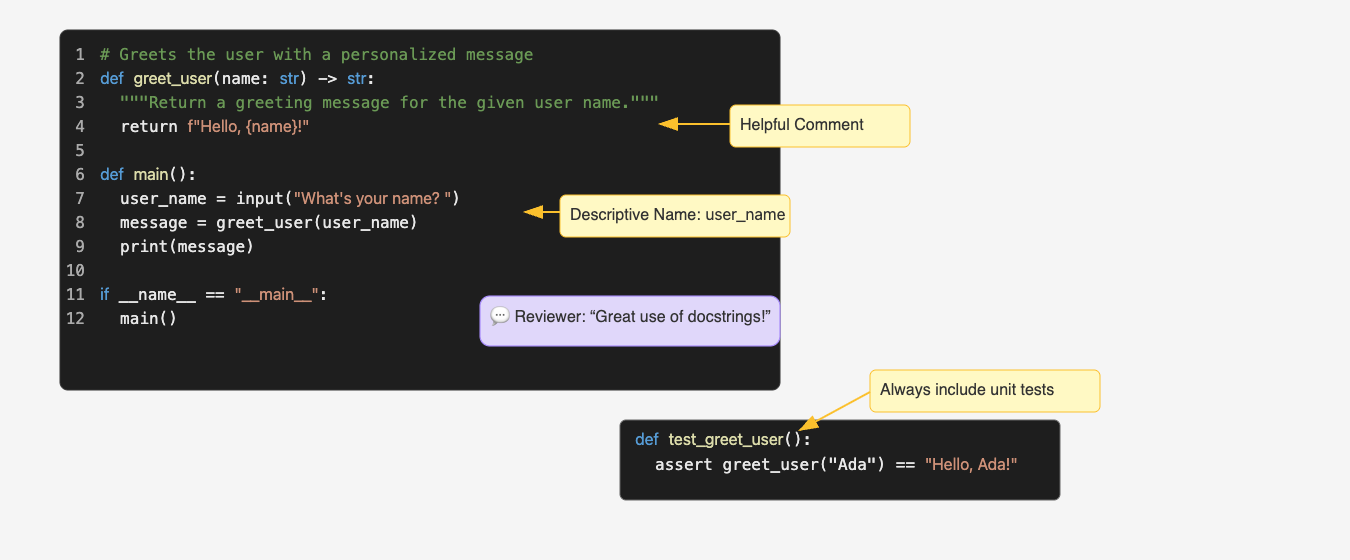Welcome to Modeling Leadership Through Action.
As a mentor, you are a role model for your mentees. You lead by example and show what great leadership looks like every single day — from being a strong software engineer to the kind of leader others aspire to become. “Be the change you want to see in the world” is a quote every mentor should keep in mind. Remember, today’s junior engineers are the future leaders of your team and organization. Show your mentees and junior engineers how to code well, solve problems, and act professionally through your actions. By modeling a strong work ethic, effective time management, and professional behavior, you inspire others to do the same.
In this course, you’ll learn how to:
- Model professional behavior and effective time management so your mentee can learn by example
- Inspire mentees to set realistic short-term goals and aim for higher career aspirations to support their growth
- Be mindful of bias and use inclusive language to ensure all mentees feel seen and supported, regardless of their background
- Help mentees develop leadership skills by encouraging initiative and integrating them more fully into the team
Your code is often the first thing new engineers will look at when they join the team, and it can have a big impact on how confident and supported they feel as they get started. Remember, reading and understanding unfamiliar code can be intimidating for someone who is new. By writing code that is clear, well-documented, and consistent with your team’s conventions, you make it easier for junior engineers to learn, contribute, and ask questions. This not only helps them ramp up faster, but also shows that you care about their experience and growth.
Tips for maintaining code quality:
- Use descriptive variable and method names
- Add helpful comments for anyone reading your code (including your future self)
- Always include unit tests
- Participate actively in code reviews

When you say things like: "Let's refactor this function to make it more readable and add a test case for the new logic," you show that quality matters.
On the other hand, saying: "Just get it working for now, we can clean it up later," can send the wrong message about what’s important.
Effective time management is a key skill for any software engineer. As a mentor, you have the opportunity to model this every day. One of the most practical ways to demonstrate strong time management is by introducing your mentee to industry-standard agile practices—such as consulting the backlog, understanding sprint planning, and breaking down user stories.
Help your mentee understand how tasks are broken up, how story points are estimated, and how higher-priority items are usually placed at the top of the backlog, signaling that they are both important and urgent. This gives your mentee a clear framework for managing their tasks and deciding what to work on first.
Even with this structure, it’s common for junior engineers to feel overwhelmed, especially during their first few sprints. Sharing practical strategies from your own experience can help them manage their workload and set priorities. You can model this behavior by:
- Prioritizing by urgency and dependencies:
"When I have several stories assigned, I start by checking which ones are blocking others or are most urgent. I tackle those first to keep the team moving." - Staying organized:
"I keep a daily to-do list based on my sprint stories. This helps me stay focused and track my progress." - Communicating blockers early:
"If I realize I might not finish something on time, I let the team know as soon as possible—either during standup or directly with my teammates. That way, we can adjust priorities or get support before it becomes a bigger issue." - Keeping stories small:
"Whenever possible, I break down large stories into smaller, more manageable tasks. This makes it easier to make steady progress and reduces the feeling of being overwhelmed."
Remind your mentee that it’s normal to feel overloaded sometimes, and that asking for help or clarification is a sign of professionalism, not weakness. By modeling these habits, you show your mentee how to manage their workload and communicate effectively during a sprint.
Time management goes hand-in-hand with professional behavior. As a mentor, you set the tone for how to communicate, collaborate, and take ownership on the team.
Here’s what professional behavior looks like at a glance:
